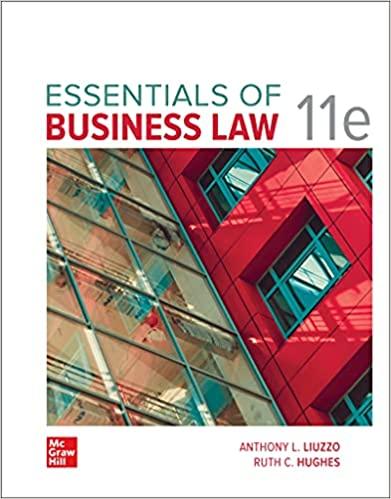Question
Hypothetical: Elnora Maxey became the guardian of Sean Hall after his parents died. In 1996, Maxey died, and her will left the two houses in
Hypothetical: Elnora Maxey became the guardian of Sean Hall after his parents died. In 1996, Maxey died, and her will left the two houses in her estate to Hall. Julia Jordan became Hall's new guardian, and when she died, her husband, John Jordan, became Hall's guardian. In 1998, when Hall was eighteen years old, he died intestate, and Jordan was appointed as the administrator of Hall's estate. The two houses had remained in Maxey's estate, but Jordan paid the mortgage and tax payments on the houses for Hall's estate because Hall had inherited the houses. Anthony Cooper, a relative of Maxey, petitioned the probate court to be appointed executor of Maxey's estate, stating that there was now no heir. The court granted the request. Jordan was not aware of the proceedings. Cooper then sold both houses for the incredibly low price of $20,000 each to Quan Smith, without informing Jordan. The houses were then resold to JSD Properties, LLC, for a total of $190,000. Learning of the sale, Jordan sued, contending that Cooper had breached his fiduciary duty and had lied to the court, as Maxey's will had clearly left the houses to Hall. Does Jordan have the right to demand that JSD return the property? What factors would be considered in making this decision? See [Witcher v. JSD Properties, LLC, 286 Ga. 717, 690 S.E.2d 855 (2010)]
Step by Step Solution
There are 3 Steps involved in it
Step: 1

Get Instant Access to Expert-Tailored Solutions
See step-by-step solutions with expert insights and AI powered tools for academic success
Step: 2

Step: 3

Ace Your Homework with AI
Get the answers you need in no time with our AI-driven, step-by-step assistance
Get Started


